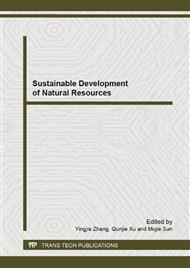p.1208
p.1212
p.1216
p.1223
p.1227
p.1231
p.1234
p.1238
p.1243
Impacts of Tourism Development in Ban had Rin Community at Koh Phangan Island, Thailand: A Sustainable Tourism Perspective
Abstract:
This paper documents the problems and impacts of the tourism development in Ban Had Rin Community at Koh Phangan Island. The study focuses on sustainable tourism including the environment, socio-culture and economic aspects. This study investigates the qualitative data from the second-hand materials as the Thailand government’s publication, research papers and website on tourism involved in the phase one, and the first-hand materials as the field survey to assess the impacts of tourism on the community in the phase two. In conclusion, the study suggests that if tourism development will be successful, Ban Had Rin Community should be planned and managed in a sustainable manner.
Info:
Periodical:
Pages:
1227-1230
Citation:
Online since:
December 2012
Authors:
Keywords:
Price:
Сopyright:
© 2013 Trans Tech Publications Ltd. All Rights Reserved
Share:
Citation:


